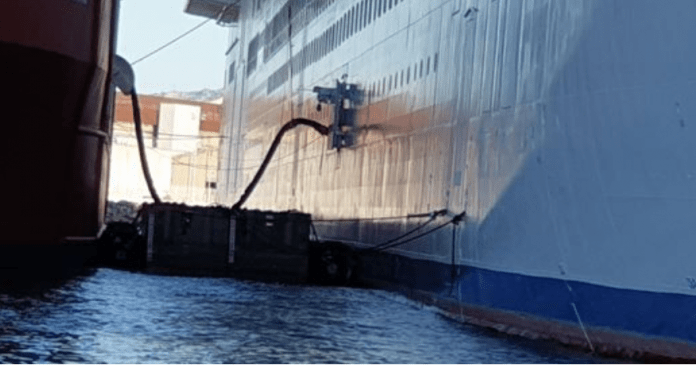The Society for Gas as a Marine Fuel (SGMF) has signed a Memorandum of Understanding (MoU) with the International Association of Ports and Harbors (IAPH) and its Clean Marine Fuels Working group to work together aiming to increase knowledge about the safe, effective and sustainable supply and use of all gases as marine fuels.
In particular, the potential use of ammonia will be investigated from source to ship with all related safety, operational and sustainability considerations.
The agreement brings together the principal technical stakeholders needed to accelerate the adoption of alternative liquified gas fuels at ports: SGMF with its energy majors, gas suppliers, equipment manufacturers, technology providers, classification societies, shipyards, ship owners and operators with the world’s principal port authorities and terminal operators from IAPH.
Mark Bell, General Manager and COO of SGMF commented: “The Society for Gas as a Marine Fuel (SGMF) was formed in 2013 with the primary objective of advocating the safe and sustainable use of low flashpoint fuels for ships. Safety is the prevalent factor and as the industry transitions towards an inevitable low carbon future, at SGMF we are looking forward to working with IAPH’s experts from ports, many of whom are either already operational or who are in the process of implementing infrastructure that provides alternative fuels to vessels.”
IAPH Technical Director Antonis Michail said, “As with the recent commenting paper submitted by IAPH to the IMO on the case for MBM revenue allocation to land-based infrastructure, it is our belief that ports may serve as the key link between the land-based fuel producers and the sea-based fuel consumers, as well as the link between fuel production and other non-shipping fuel consumers. Ports have the potential to act as energy hubs as a cheaper and safer alternative than storing them elsewhere. SGMF members with their technical competences have the potential to help us make that happen.”
Capitalising on over a decade of know-how on bunker checklists, audit tools to evaluate terminal operator concessions and terminal readiness guidance with tried and tested procedures to ensure rigorous operational safety when handling LNG will now also be applied to new alternative fuels such as ammonia, hydrogen and methanol.







